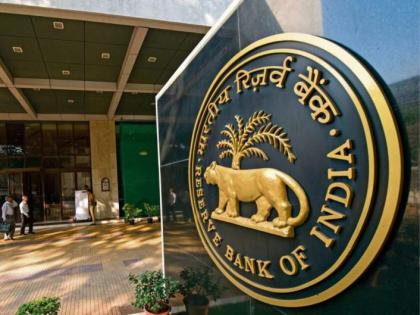RBI proposes stricter norms for loan recovery, bans calls before 8:00 a.m. and after 7:00 p.m
By Lokmat English Desk | Updated: October 27, 2023 12:28 IST2023-10-27T12:18:41+5:302023-10-27T12:28:28+5:30
In a significant move aimed at protecting borrowers from harassment during debt recovery efforts, the Reserve Bank of India ...

RBI proposes stricter norms for loan recovery, bans calls before 8:00 a.m. and after 7:00 p.m
In a significant move aimed at protecting borrowers from harassment during debt recovery efforts, the Reserve Bank of India (RBI) has proposed strict norms for regulated entities and their recovery agents.
According to reports, the new guidelines restrict regulated entities, including banks, regional rural banks, payments and small finance banks, NBFCs, housing finance companies, and urban, state, and central co-operative banks, from contacting borrowers or guarantors before 8 am and after 7 pm for the recovery of overdue loans.
According to reports in Indian Express, the RBI suggested that regulated entities should put in place a board approved code of conduct for direct sales agents (DSA), direct marketing agents (DMA), and recovery agents. They should ensure that the DSA/DMA/ recovery agents are properly trained to handle their responsibilities with care and sensitivity, particularly aspects such as soliciting customers, hours of calling, privacy of customer information and conveying the correct terms and conditions of the products on offer.
The RE and their recovery agents shall not resort to intimidation or harassment of any kind, either verbal or physical, against any person in their debt collection efforts,” the RBI said in the draft norms on Managing Risks and Code of Conduct in Outsourcing of Financial Services.
The RBI recommended that regulated entities planning to outsource any of their financial activities should establish a comprehensive outsourcing policy approved by the board. This policy should ensure that the board and senior management bear ultimate responsibility for handling the inherent risks associated with outsourcing arrangements. The lenders will have to evaluate the various risks related to compliance, contractual, exit strategy, legal and operation while outsourcing the services.
RBI proposed that regulated entities should not outsource core management functions including policy formulation, decision-making functions like determining compliance with KYC norms and according sanction for loans. A regulated entity should take a final call on extending credit to any particular customer irrespective of whether a service provider is involved or not in the process, the draft norms said.
These recommendations are part of the RBI’s effort to protect borrowers from harassment by recovery agents for collection of overdue loans.
Open in app